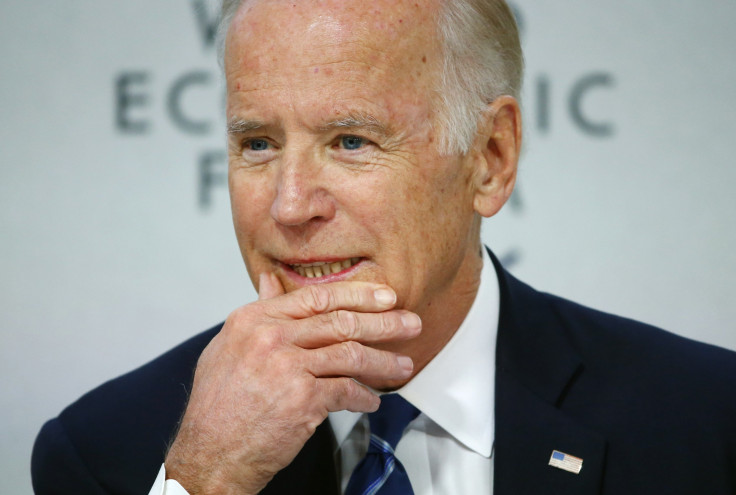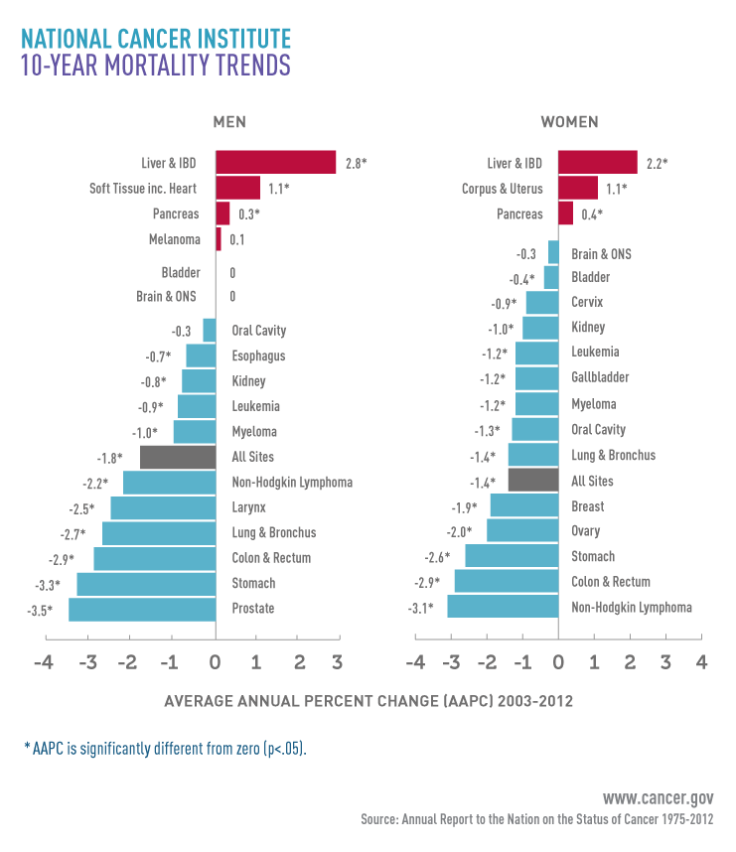Joe Biden’s Cancer Moonshot: How Cancer And Oncology Affect The US, By The Numbers [CHART]

A book dubbed it the Emperor of All Maladies. This year, projections suggest that it will take 595,690 lives. The disease is cancer, and because so many questions about its causes and cures remain unanswered, the White House earlier this year launched the National Cancer Moonshot Initiative. It kicked off its first official summit Wednesday.
While many Americans have firsthand experience with cancer — perhaps their own, or that of a loved one, friend or colleague — envisioning what cancer means for the U.S. as a whole can be challenging. How much money does the U.S. spend on cancer every year, or how many people die early because of it? How have cancer rates changed in recent years? On a national level, cancer’s burden becomes compounded.
First, cancer is one of the leading causes of early death in the country:
It is also one of the leading causes of death.
About 7 percent of healthcare spending in the U.S. goes toward cancer:
Here’s how much Americans spend on oncology drugs, compared to other specialty medications:
Meanwhile, mortality rates from many cancers have fallen for both men and women in the past decade. Still, a few types of cancers are on the rise, as the following infographic from the National Cancer Institute shows.

U.S. President Barack Obama announced the National Cancer Moonshot Initiative, often referred to simply as the cancer moonshot, in January. He tasked Vice President Joe Biden with leading the initiative, whose mission is to inject new life into oncology — the study of cancer — make therapies available to all patients and improve the medical world’s ability to prevent and detect cancer in its early stages. In a phrase: Cure cancer.
© Copyright IBTimes 2025. All rights reserved.






















